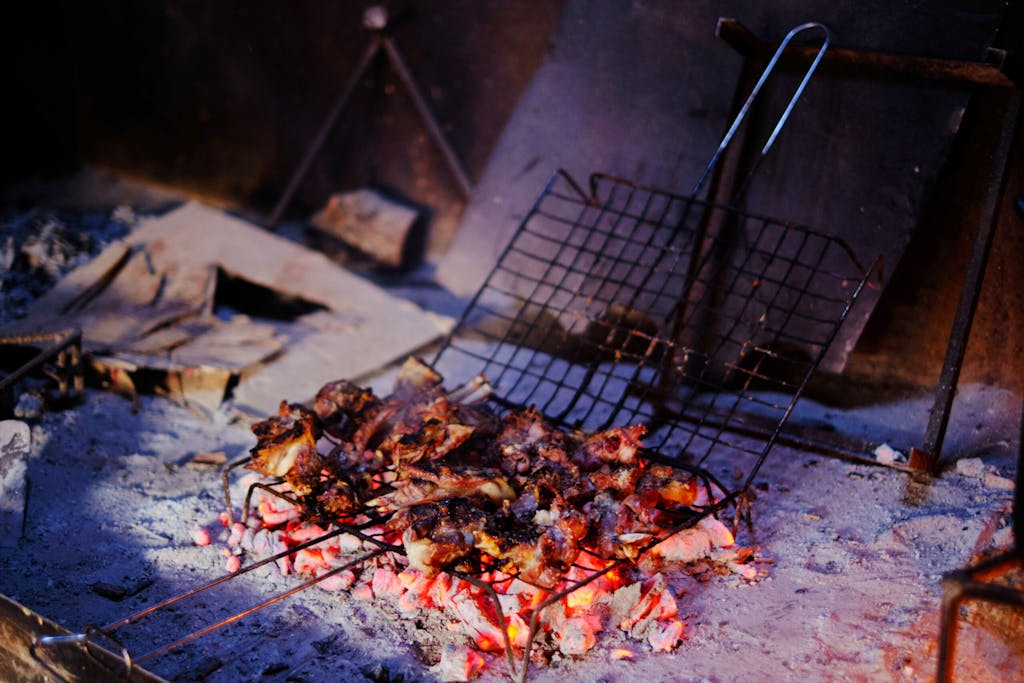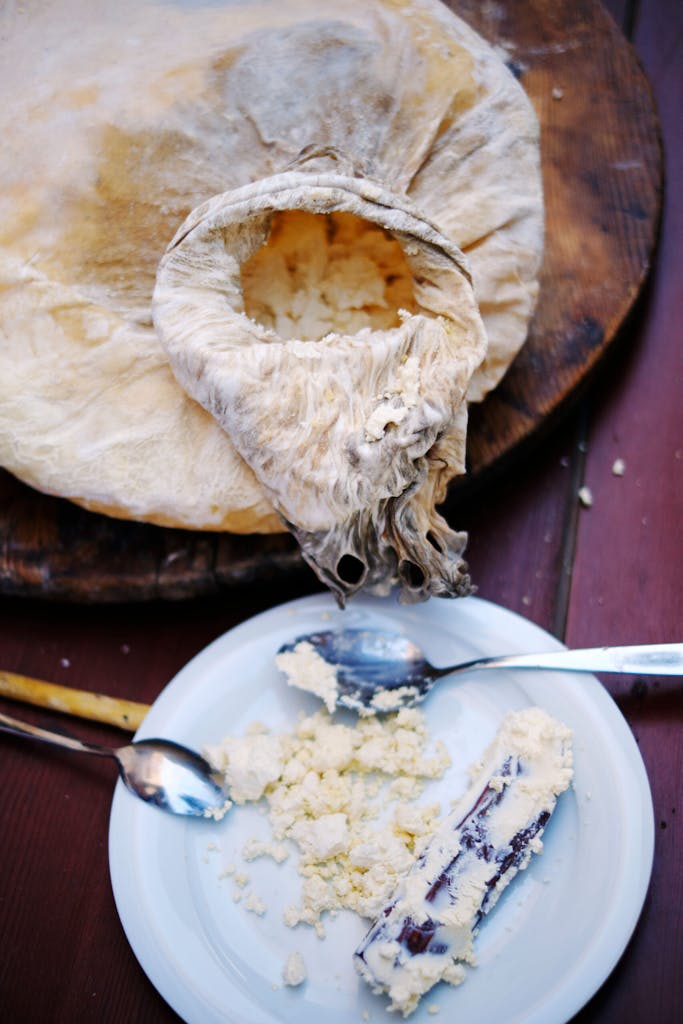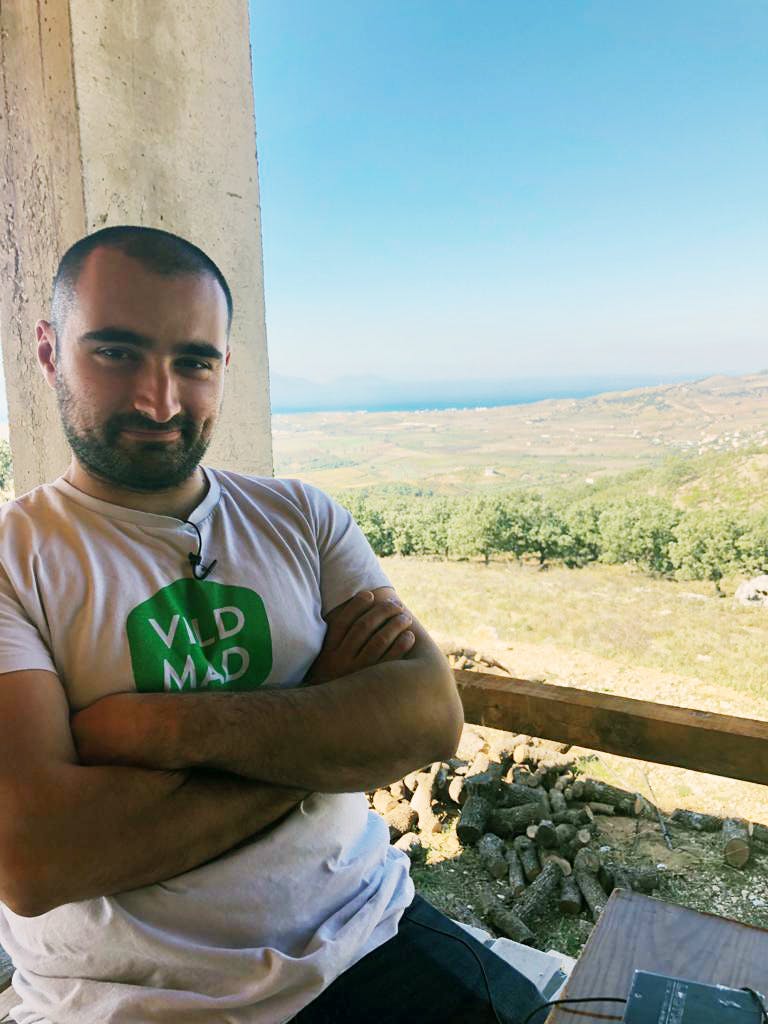Savoring Albania: Here’s Why the Country’s Cuisine Will Entice You to Visit
Welcome to S.A.L.T. Lab Radio, a series of podcasts devoted to following food to its source and meeting the people preserving culinary traditions, creating new ones and teaching us all how to eat in more well informed ways. On our second episode, 100 Layers of Rays of the Sun: An Albanian Expedition, S.A.L.T. Director Adam Sachs travels to the Balkan nation guided by Fejsal Demiraj, co-founder of the RRNO Foundation and a chef at Noma. Demiraj, shares the culinary soul of his ancestral homeland, taking us on an epic journey from city to city and village to village, culminating in one of the most elemental and spectacular kitchens on Earth. Listen in as Fejsal, RRNO co-founder Nikolin Kola, and an unforgettable couple named Sofo and Dhurata unlock the stories and the food of a nation once cut off from the world and explain how cooking plays a pivotal role in both the survival and the future of Albania.
Much like its surrounding countries, Albania’s cuisine is soaked in tradition and bold flavors. But while most people are familiar with Italian parmigiana, Greek suvlaki and maybe even Croatian peka, hearty Albanian fare such as flija and tavë kosi is less universally known.
Up until the past decade, few made the trip from Italy’s heel to the other side of the Adriatic, or ventured north of Corfu, to experience the tastes of Albania. A turbulent history, defined by a 40-year communist dictatorship led by Enver Hoxha, made many either hesitant or unable to visit the country. Meanwhile, for Albanians, detrimental agricultural laws put in place by Hoxha severely restricted the celebration and evolution of their home cuisine.
Now, a new era for its people is bringing the region’s gastronomy to light both at home and internationally.

A champion of the region is Fejsal Demiraj, the superstar sous chef at iconic Copenhagen restaurant Noma, and co-founder of RRNO Foundation, a non-profit organization that aims to preserve, develop and promote Albanian gastronomy worldwide. Through his Albanian Expedition initiative, Demiraj travels across the country – as well as to Kosovo and North Macedonia, where there are large ethnic Albanian populations – to shed light on the flavors that have defined the region for centuries.
“Albania was the North Korea of Europe for several decades,” Demiraj tells S.A.L.T Kitchen. “Now this young developing country, which is only 30 years old, kind of gets a bad rap. And I feel like, that’s kind of BS…we are very rich in gastronomy. We have a very rich culture.”
Albanian cuisine is incredibly varied and has strong regional differences. Along the coast and southern Albania, the food is closer in nature to its Mediterranean neighbors with charcoal grilled fish and pillowy rice a staple in most kitchens. Further north in the mountainous regions, pastries, flame grilled meats and pickled vegetables or relishes are served at the table. Common themes among all of the territories however is the tendency to cook over open flames and add cream accompaniments to dishes, such as maza – a traditional dairy made from sheep’s milk that sits somewhere between a thick cream and young cheese and is used for spreading, dipping, topping and even cooking various meats and vegetables in.

The dish that unites most ethnic Albanians is flija, and it also perfectly encapsulates these two properties. Demiraj describes flija as a “layered, savory cake of crepes, that are barbecued”. The layers are built with a mixture of two components: a simple batter made from various flours and water, and another with butter or Albanian maza. It is then cooked with a saç, a metal lid topped with coal, used as a broiler. “It’s over 1,000 years old,” says Demiraj. “It’s deceptively complex.”
A list of Albanian chefs across the country and its large diaspora are now toying with such flavors. Another Noma alumnus, Bledar Kola, is the founder of high-concept Albanian restaurant Mullixhiu, which translates to ‘the miller’ and is located in the country’s capital Tirana. Kola focuses on fresh bread because of the cultural significance of it in Albania’s ancient social code, which states that all guests must be hosted with bread and “an open heart”. Within Mullixhiu, he plays with the flavors inherited from Albania’s Ottoman past and proximity to Italy and Greece.
“It’s important to understand that for Albanians, these traditions have been carried on by word-of-mouth for so many years. The amount of care which goes into this food can only equate to the love a grandmother offers.”
Fejsal Demiraj
Elsewhere, across the Adriatic in Italy, Fundim Gjepali is head chef of Rome’s Michelin guide restaurant Antico Arco and simultaneously heads up Padam in Tirana and his own agrotourism business in Shijak, central Albania.
“A lot of Ottoman dishes originate from Albanian territories,” Gjepali tells us. “But this tradition was ruined by 40 years of communism. Because of this, and extreme poverty, we lost the continuity that other Western countries, like Italy, have. The last decade has been a period of rediscovery for a lot of us.”
Others are also trying to bring Albanian flavors to life around the world, both with traditional restaurants that serve the likes of mantia (veal dumplings) and leqenik (corn bread), as well as high-concept kitchens which interweave different elements of Albania’s cuisine.
In New York City, Çka Ka Qëllu serves up traditional creamy dips, grilled meats and stews in clay pots inspired by northern Albania and Kosovo. Çka Ka Qëllu recently got a nod from New York Times food critic Pete Wells for its “deep-end Albanian experience”. In London, the kitchen of acclaimed Peckham Bazaar is headed by John Gionaleka, whose dishes draw inspiration from ingredients commonly found across the region.

Demiraj is insistent, however, that Albanian cooking is a predominantly matriarchal fare: a key to a successful food expedition, he says, is speaking to as many grandmothers as he can possibly find.
Female-led restaurants that Demiraj recommends include Hotel Bacelli in the southeastern Albanian city of Korçë, which is headed up by Shpresa Bacelli, and Trendafili Mistik in northern Albania, spearheaded by Diella Loshi.
“It’s important to understand that for Albanians, these traditions have been carried on by word-of-mouth for so many years. The amount of care which goes into this food can only equate to the love a grandmother offers,” Demiraj says.




